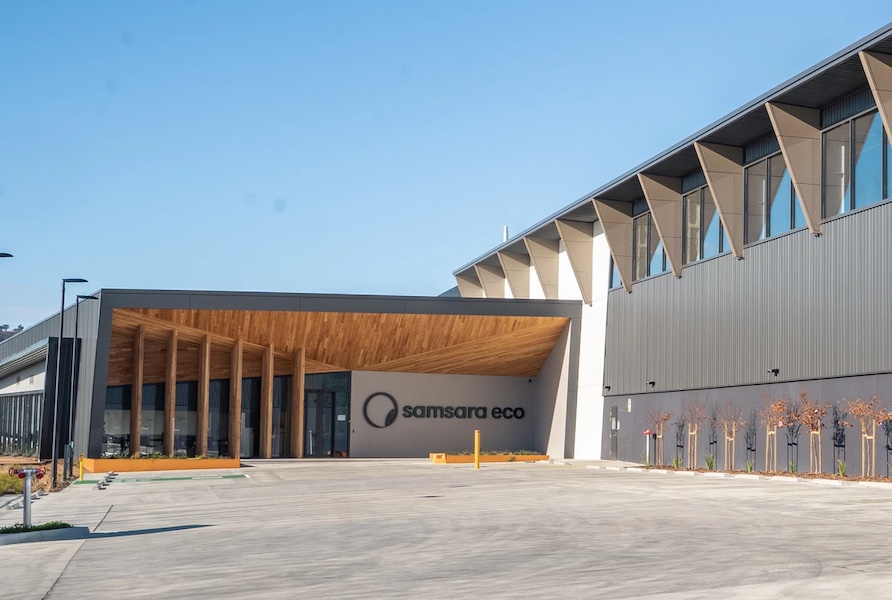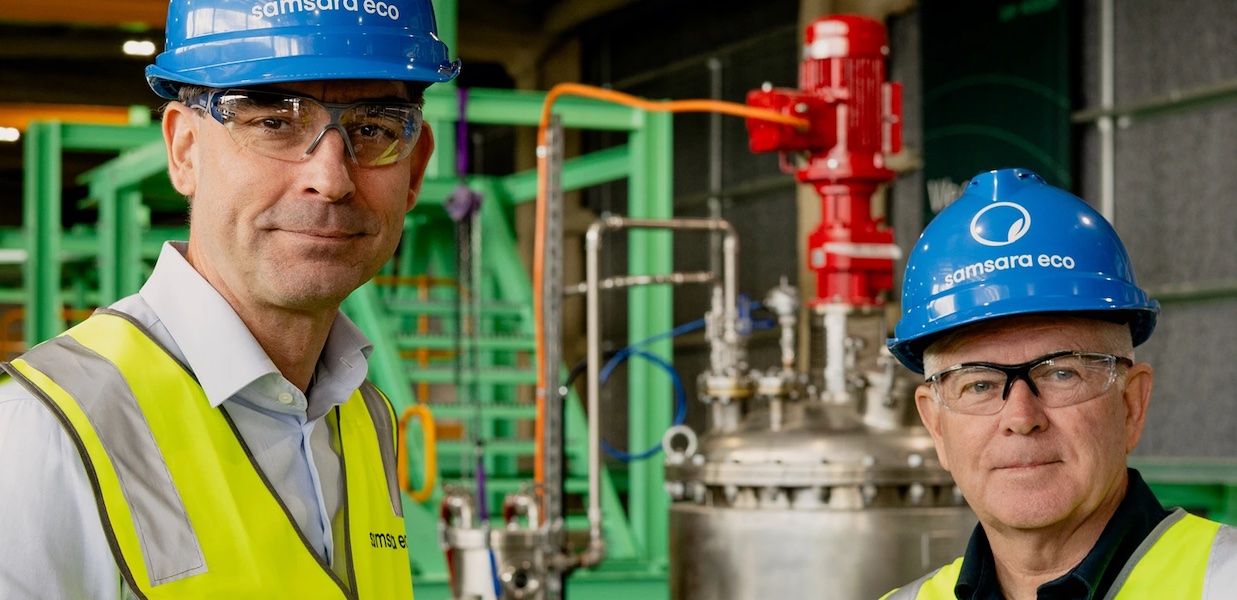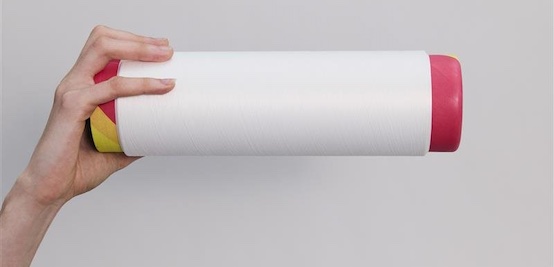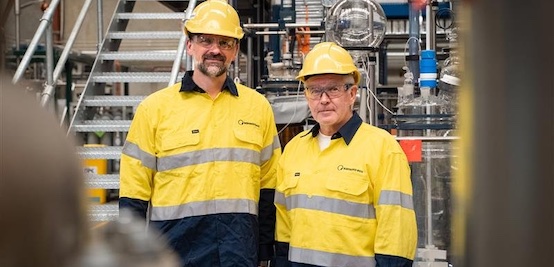#Recycling / Circular Economy
Samsara Eco opens first plant to scale circular plastics

Located in Jerrabomberra, regional Australia, the new headquarters and plant houses EosEco, Samsara Eco’s breakthrough enzymatic recycling technology. The technology uses AI-crafted enzymes to break down mixed plastics destined for landfill into recycled raw materials, ready for brands to incorporate into their next product line. The facility also houses expanded enzyme production facilities, allowing Samsara Eco to further build out its proprietary AI-powered enzyme discovery and development platform to find recycling solutions for a broader range of plastics.
“The opening of Jerrabomberra is a proud milestone for us and the broader circular economy. In just four years, we’ve scaled from bench research through to pilot, demonstration, and now our first plant. This is a true tipping point for circularity, shifting circular materials from early-stage innovation to mainstream reality.
“Brand demand and supportive new regulations are helping to clear the path forward. Our new facility will help brands deliver circularity with the capacity to produce the equivalent of hundreds of thousands of garments annually,” said Paul Riley, CEO and founder of Samsara Eco.
The circular materials made at Jerrabomberra will feature in upcoming product lines for global brands like lululemon, as well as pilot programs and trials with brands across textiles, automotive and packaging. The facility will also host world-first research including finding recycling solutions for the likes of spandex with The LYCRA Company, and our collaboration with Deakin University’s Recycling and Clean Energy Commercialisation Hub, part of the Australian Government’s Trailblazer Universities Program.
Today, only 10% of plastics are recycled and less than 1% of textiles are recycled into new textiles, perpetuating a linear economy. Samsara Eco aims to rewrite those numbers by recycling the unrecyclable to keep high-value materials out of the landfill.
“This isn't just about building a plant. It's about building a circular future where materials don’t have an end-of-life. Instead, they are infinitely recycled, reducing the world’s reliance on finite resources,” continued Riley.
Jerrabomberra provides a runway for Samsara Eco’s first nylon 6,6 commercial plant, which is being designed with engineering partner, KBR and due to open in Asia in 2028. The 20,000 tonne facility will be the first of a fleet of international commercial facilities, which will use Samsara Eco’s EosEco technology to turn waste into virgin-identical raw materials.
“Our Jerrabomberra plant marks a significant milestone in Australia’s advanced manufacturing and circular economy journey,” added Riley. “Our technology supports Australia’s net-zero targets while driving economic growth, resilience, and productivity. We're creating an entirely new industry to unlock major export opportunities and bring new skills to market, while also helping to position Australia as a leader in circular technology and a global exporter of circular materials.
“We’re grateful for the support we’ve received from our global investors including Main Sequence and Temasek, as well as the local community, who have supported us every step of the way to make Jerrabomberra a reality.”
Samsara Eco’s consortium of global investors i backed the opening commented on the milestone:
Carley Phillips, Principal, at Greycroft: “Samsara Eco’s new Jerrabomberra facility marks an important step towards scaling circular materials and showcasing the power of technology to transform industries. We are excited to continue supporting the team as they bring this innovation to market and drive the growth of the circular economy.”
Jan Marchewski, Associate at Hitachi Ventures said: “We’ve been deeply impressed by Samsara Eco’s ability to deliver every milestone on time and on budget – an extraordinary achievement for a deep tech company. The opening of the Jerrabomberra facility is a powerful testament to the team’s execution excellence. This hub will enable Samsara Eco to test AI-discovered enzymes at scale in collaboration with partners, further cementing its market leadership in enzymatic recycling.”
Phil Morle, Partner at Main Sequence commented: “Samsara Eco opening its first plant for infinite plastic recycling in regional Australia is an exemplar of Australian ingenuity leading the world to create industries for the next generation of growth. In this case, the first step to eradicating the problem of plastic waste.”















